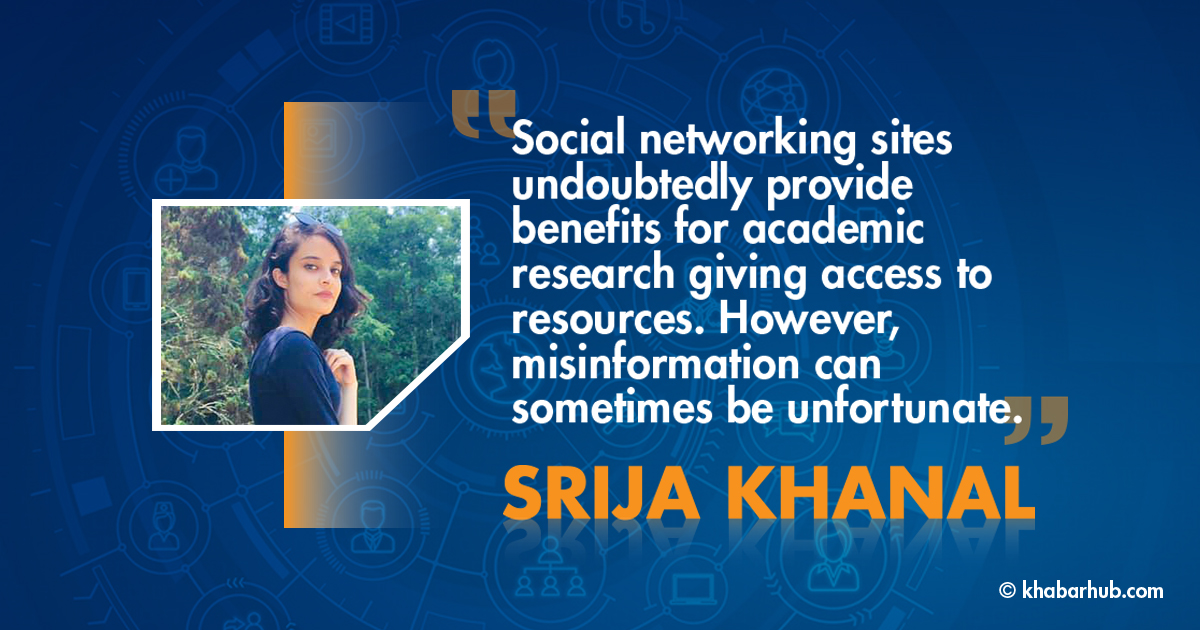Nepal’s Prime Minister KP Oli on Monday made an appeal to one and all not to be swayed by the false and misleading publicity orchestrated against the incumbent government.
By saying so, he was perhaps hinting at some media reports or social media content criticizing him and his government.
News reports and stories on social media – be it true or untrue — go viral. Moreover, newsworthy and outrageous content get exclusive coverage, and are shared extensively on social media.
Social media as a key source of news reports and content has also generated a tendency for spreading misinformation, sometimes fake news is presented in such a way as if they are authentic.
On a positive note, increased use of social media has also created awareness among the general people by increasing the visibility of current issues.
Here, by saying so, I am neither favoring the Prime Minister’s statement nor I am encouraging fake information on social platforms since I am well aware of the fact that the extensive use of social networking sites has been a pervasive part of interaction without knowing much about its fallout and people’s spiritual and mental health.
Besides dissemination of fake news, social media tend to misinform the general people by diverting an issue, be it political or social – the latest being numerous “facts” on COVID-19.
Social networking and media, as evidence suggest, also play a vital role during elections as people tend to share anything that supports their candidate. Such a tendency can result in unfortunate circumstances as these kinds of false stories and reports can cause severe damage since thousands of readers have already gone through it.
Moreover, social sites, particularly Facebook, are seen to be inundated with shoddy memes that emanate cynicism or sometimes even hatred towards a particular individual or a political leader by creating his/her negative image.
Sometimes a simple post on social media can make an influence to a harmful extent. Slashing or discouraging the spread of misinformation on social media has been a real challenge.
Misuse of social media also includes pestering, personal attacks, or misuse of information that lead to problems and even intrude on someone’s privacy. And by the time any private content is deleted, it will be too late.
The use of social networking sites provides an indispensable way of communication, no doubt. Social platforms also connect people and help improve social and professional life on the basis of the right information on social issues, health, and career, among others.
However, people need to make sure that they are not misguided by the misinformation on such platforms.
On a positive note, increased use of social media has also created awareness among the general people by increasing the visibility of current issues.
Social media has undoubtedly brought an increased awareness about societal and political issues. However, questions remain whether such awareness translates into real change or not. Merely pressing the ‘Like’ or ‘Share’ button on any content without comprehending the information should be discouraged as it can misinform the people.
Social sites are sometimes flooded with satirical publications leading to confusion among the readers. It is sometimes hard to say whether the story or news is real or fake making it difficult for a reader to judge its authenticity as most people only having a glance at the headlines and making an opinion.
Misuse of social media also includes pestering, personal attacks, or misuse of information that lead to problems and even intrude on someone’s privacy. And by the time any private content is deleted, it will be too late.
The impact of social media is mostly encouraging as people, particularly youngsters, are seen to be cherishing artificial bonds over actual friendships by chatting with a social media ‘friend’ despite lacking intimacy or without knowing or understanding each other.
However, most fake news or social media ‘friends’ never give the message that they are fake.
Social sites are sometimes flooded with satirical publications leading to confusion among the readers. It is sometimes hard to say whether the story or news is real or fake making it difficult for a reader to judge its authenticity as most people only having a glance at the headlines and making an opinion.
Hence, people need to analyze whether the content on a social platform is genuine and whether their time spent on it is affecting their quality of life.









Comment